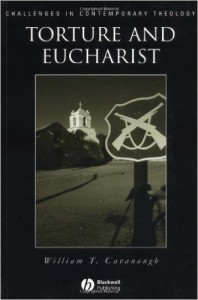Vatican II, by contrast, looks like a reasonable and necessary response to new currents in theology, that is, an attempt to break free from some of the linguistic strictures imposed by Vatican I. In Crisis Magazine, George Sim Johnston writes:
There had been 20 previous ecumenical councils, and most were summoned in response to a serious crisis, either a heresy like Arianism or the threats of emperors. But in 1959, everything seemed fine. The first official notice of the council was hardly electrifying—a short statement in L’Osservatore Romano to the effect that the pope intended to take three steps to meet the errors of the time—hold a diocesan synod of the clergy in Rome, summon an ecumenical council of the universal Church, and bring the Code of Canon Law up to date. The officials in the Roman Curia were mostly appalled. The first reaction of Giovanni Battista Cardinal Montini, who as Pope Paul VI would ably steer the council to its conclusion, was that Roncalli had no idea what a “hornet’s nest” he was stirring up.

Vatican II, might have become political, but its origins certainly were less so than those of Vatican I. Even in the misty eyes of a Latin Mass-loving Catholic like myself, there is a clear need to see the Ding an sich here. Vatican I makes William T. Cavanaugh’s political theology look positively apolitical. I might add that nowhere do I intend to say I disagree with these pronouncements, only to contextualize two events treated, frankly, in the opposite ways in which they should be.
Now, if only we could get those “defenders of orthodoxy” to see that even a great hero of theirs such as G.K. Chesterton took issue with capitalism, we might be able to get me my cake so I could eat it too, perhaps something to think about in Jean-Luc Marion’s newest book, if you like that sort of thing.
https://www.youtube.com/watch?v=Du3WhHrrNgsChase Padusniak is a doctoral student at Princeton University, where he specializes in medieval literature, especially its relationship with technology and Continental Philosophy. He has written for numerous publications, including The Intercollegiate Review, Ethika Politika, CatholicVote, and Almost Orthodoxy.
This was a guest post.
You might also want to read excerpts from an Advent meditation by the granddaddy of contemporary political theology, Johannes Baptist Metz, entitled In the Beginning Was Poverty: Advent Should Rob You Blind.
If that has your interest you might also want to see why William T. Cavanaugh says that the liturgy is not sacred.












